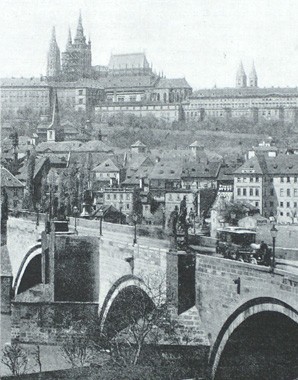Ferdinand of Tyrol: from Innsbruck to Prague and back
Ferdinand of Tyrol is principally known as the founder of a short-lived collateral Habsburg line and as a patron of the arts. However, it is often forgotten that he also had close ties with Bohemia.
The fourth child of Archduke Ferdinand (as emperor from 1558 Ferdinand I) and the Jagiello princess Anna of Bohemia and Hungary, Ferdinand was born in Linz on 14 June 1529 and grew up in Innsbruck, where his parents’ court had moved to escape the threat to Vienna posed by the Ottomans (First Turkish Siege of Vienna, 1529). Later he followed his parents to Prague, where his father, who had acceded to the crown in 1526, was obliged to show his presence in this newly acquired kingdom.
Ferdinand’s trajectory through life was to remain connected to Prague and Bohemia, as he was appointed governor of this dominion as his father’s representative. Ferdinand was assigned this post in 1547, after his father had put down a revolt by the Estates. It was assumed that as the son of the Jagiello heiress Ferdinand would be more readily accepted by the Bohemian Estates. As viceroy in Prague he held court in extravagant style. His court served as a platform for the integration of the Bohemian nobility with the Habsburg court nobility of Austrian-Spanish extraction.
After the death of his father in 1564 Ferdinand received the rulership of Tyrol and Further Austria, as the scattered territories in Swabia, Alsace and the Allgäu were collectively termed. From 1567 he resided in Innsbruck. In Tyrol it is above all Schloss Ambras, where he assembled an important art collection, that is associated with his name.
Ferdinand’s rule in Tyrol was marked by sectarian conflict. However, he succeeded in preserving the position of the established Church in his dominions. He pursued heretics with cruel force, mercilessly persecuting the adherents of the Anabaptist movement.
He was supported in his counter-reformatory activities by the Jesuits, whom his father had brought to Austria. Ferdinand himself founded several Catholic institutions, for example, (together with his sisters) the Damenstift in Hall, or the first house of the Capuchin Order north of the Alps in Innsbruck in 1593/94.
Ferdinand of Tyrol died in his Innsbruck residence on 24 January 1595, leaving huge debts behind him. He is buried in Innsbruck, in the Hofkirche that he commissioned.















